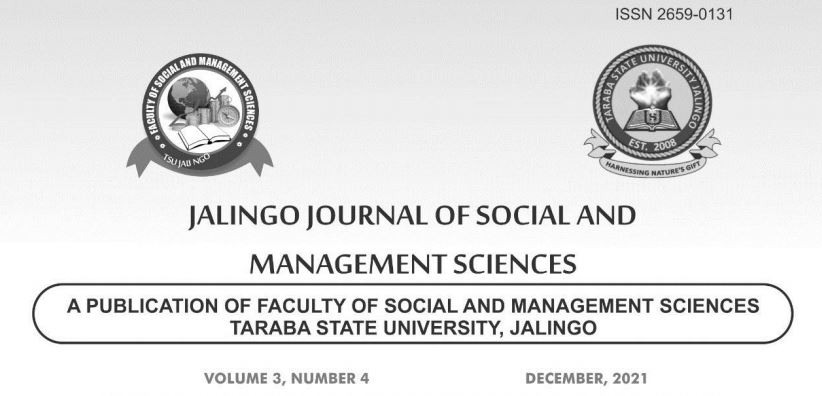Effects of Entrepreneurial Self-Efficacy on the Relationship Between Entrepreneurial Education and Entrepreneurial Intention of Female Students in Kaduna State University
Keywords:
Entrepreneurship education, Entrepreneurial self-efficacy, Entrepreneurial intention, Total early-stage entrepreneurship activity, UnemploymentAbstract
The lingering yearning for white-collar jobs, and graduate joblessness as well as low level of female entrepreneurial intention necessitates this study. Therefore, the study examined the effects of entrepreneurial self-efficacy on the relationship between entrepreneurial education and entrepreneurial intention of female students in Kaduna State University. The study used the partial least square structural equation modelling (PLS-SEM) as a technique to run and analyse the data collected from University female students using a sample of 418 students. The findings of the study showed that the relationship between entrepreneurial education, entrepreneurial self-selfefficacy and entrepreneurial intention (EI) were found to be positive and significant. Also, entrepreneurial self-self-efficacy moderates the relationship between entrepreneurial education and EI. The study concludes that entrepreneurial self-efficacy plays a significant role and is very critical in developing entrepreneurial intention which is a strong predictor of entrepreneurial behaviour and subsequent venture creation. Thus, the study recommends among others that KASU’s management and other policymakers should focus on enhancing female students’ confidence in their abilities to successfully execute those tasks necessary for entrepreneurship, as it is capable of strengthening the acquired entrepreneurship knowledge towards forming EI which has direct effect on becoming self-employed.

Downloads
Published
Issue
Section
License
Copyright (c) 2023 JALINGO JOURNAL OF SOCIAL AND MANAGEMENT SCIENCES

This work is licensed under a Creative Commons Attribution-NonCommercial 4.0 International License.
